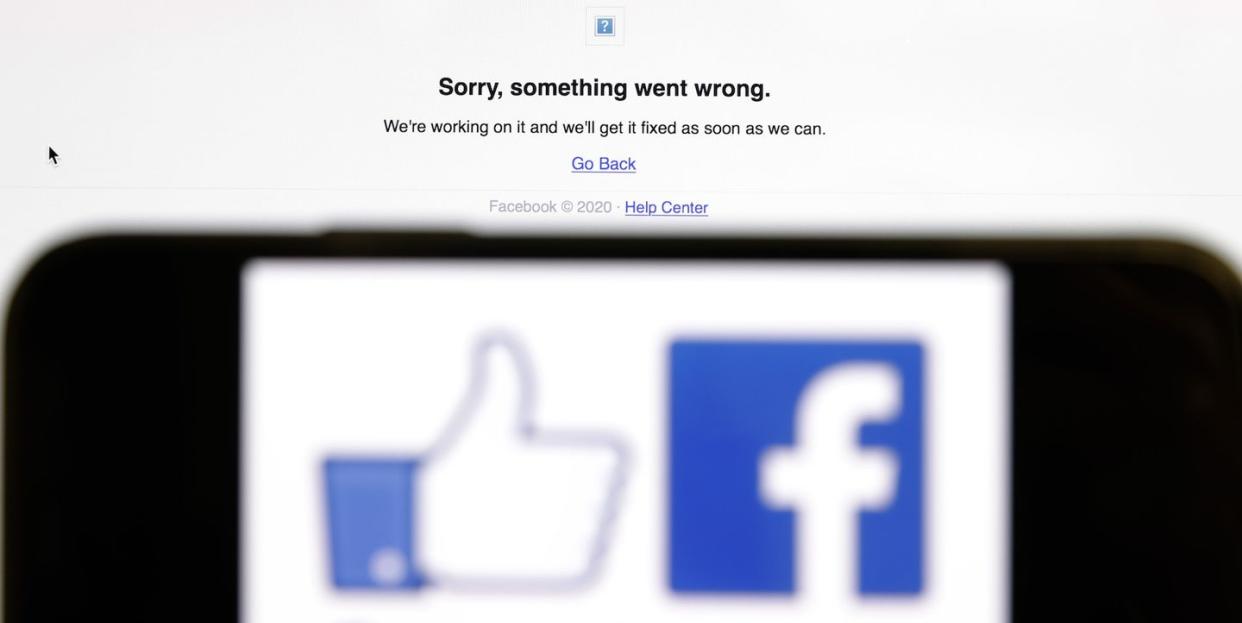Maybe the Only Solution Is to Log Off

On Monday, the day after Facebook whistleblower Frances Haugen revealed her identity on 60 Minutes, the largest territories of the Facebook empire—Instagram, Whatsapp, Facebook itself, and other apps—were down. Two anonymous Facebook security team members told the New York Times the outage was not the result of an external hack. It's tempting, too, to imagine this as Zuckerberg's Riposte, a taste of life without our beloved Applications following an avalanche of revelations, primarily in the Wall Street Journal and facilitated by Haugen, documenting just how diseased Facebook is as a product. But there's no evidence for any self-sabotage, either. What this has become, as the outage drags on this Monday afternoon, is an invitation to think about a world without Facebook.
After all, what Haugen has made public about the company and its products has been damning. In that 60 Minutes interview, she laid out the fundamental problem Facebook has: the poison is good for business. Content that makes us angry and hostile also makes us engaged, which is the basic business model of Facebook—keep people engaged, sell their attention to advertisers. The platform's rules don't always apply to powerful actors. The company is also fully aware of the damage that Instagram is doing to young people, particularly teen girls, and of grotesque feedback loops wherein they actually spend more time on the platform even as it batters their mental health. Few will shed many tears for The Media, but Facebook has also used its duopoly power, alongside Google, to ransack the advertising model of digital media. And then there's the whole thing where Facebook was used as a tool for fomenting genocide in Myanmar.
The ubiquity of social media in modern life has something of the feel of the gun situation in America. There are so many guns already out there that it's hard to see any gun-control strategy as realistic beyond hoping that enough people choose to renounce their membership in this culture—and, in the most fevered dreams, voluntarily give up their guns. Considering the kind of questions our most senior elected representatives ask of Facebook when they get the chance, it's hard to see an effective regulatory scheme emerging to deal with this, either. Maybe the most realistic option is just hoping people grow disgusted with these products, as presently constituted, and opt out.
For now, the way we're living is a choice. We're also watching oil wash up on a California beach, a potential ecological disaster that struck before we could set that same oil on fire in order to fuel our lifestyles as well as a far more sprawling ecological disaster. As the infrastructure bills are in flux, and will likely fall short of the kind of decarbonization we need regardless, we are for now choosing to continue living this way. Lately, what Facebook does has come to be described by some as "social pollution," and we have no coherent plan as a society to stop poisoning ourselves. Maybe it's just time to log off.
You Might Also Like

